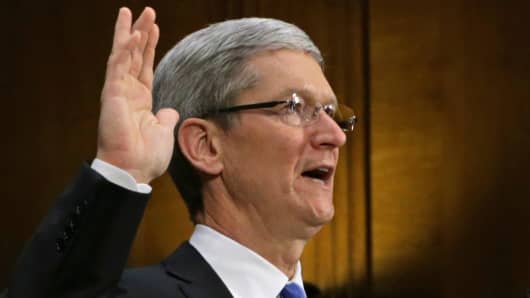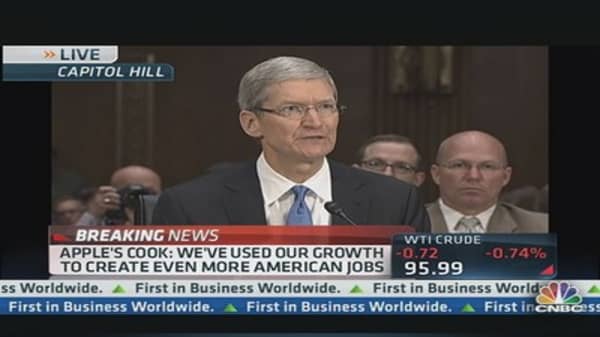Levin, a Democrat, urged closing "unjustified tax loopholes" like those he said Apple used to avoid $9 billion in U.S. taxes in 2012.
"Closing these kinds of unjustified loopholes could provide hundreds of billions of dollars to reduce the deficit and avert damaging budget cuts," he said at the hearing.
"We should close them and dedicate the revenue that generates to these important priorities, whether or not we reform the overall tax code," he said.
Sen. John McCain praised Apple as a success story but said that its tax strategy "reflects a flawed corporate tax system."
The former Republican presidential nominee said, "It is a system that allows large multinational corporations to shift profits offshore to low-tax jurisdictions. For years, Apple has opted to forgo fully contributing to the U.S. Treasury and to American society by shifting profits and circumventing U.S. taxes."
Subcommittee staffers said Monday that Apple was not breaking any law and had cooperated fully with the inquiry.
Apple said in a comment posted online Monday that it does not use "tax gimmicks." It said the existence of its "Apple Operations International" unit in Ireland does not reduce Apple's U.S. tax liability and the company will pay more than $7 billion in U.S. taxes in fiscal 2013.
At the hearing, Levin's subcommittee issued a 40-page memorandum focused on explaining allegations that Apple used three subsidiaries with no "tax residency" in Ireland, where executives manage those companies.
The main subsidiary, a holding company that includes Apple's retail stores throughout Europe, has not paid any corporate income tax in the last five years, the subcommittee said.





